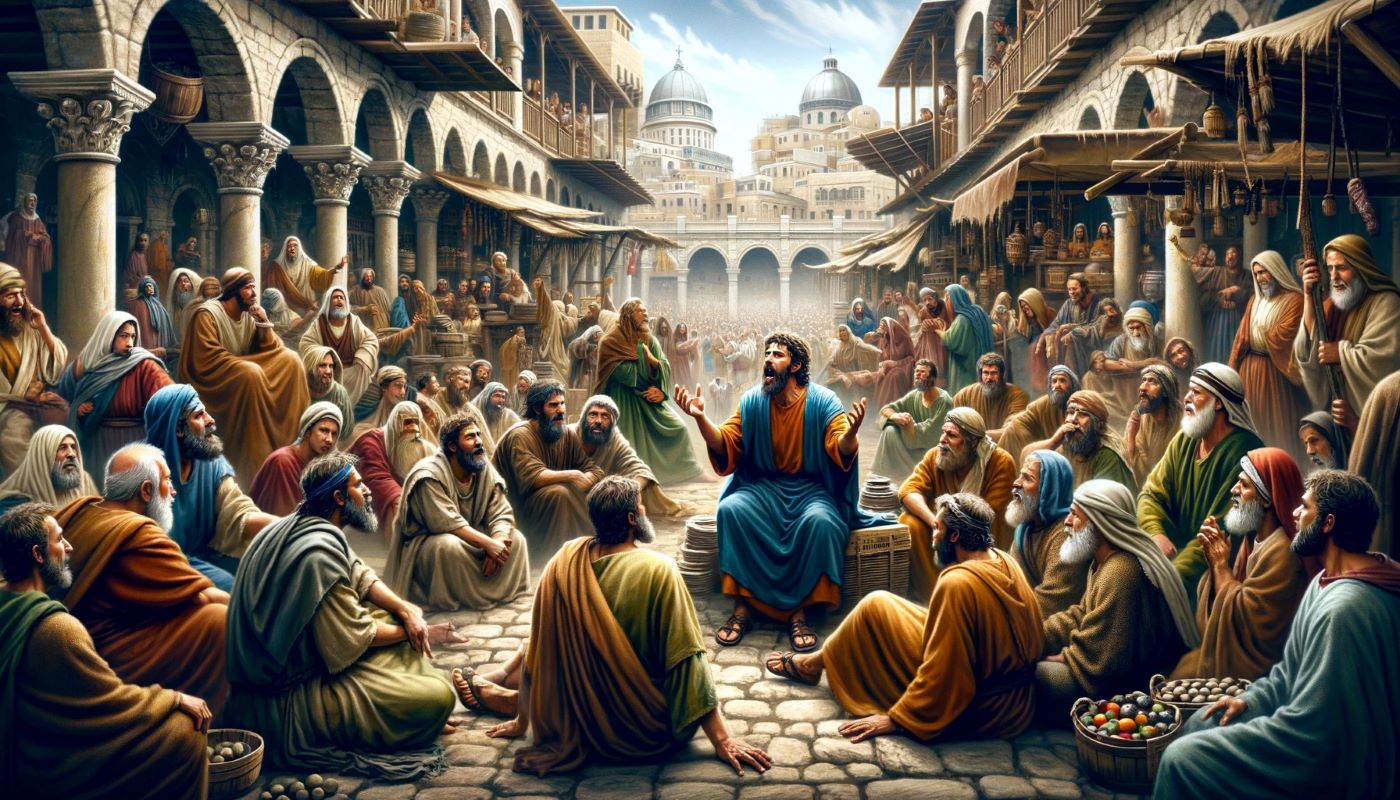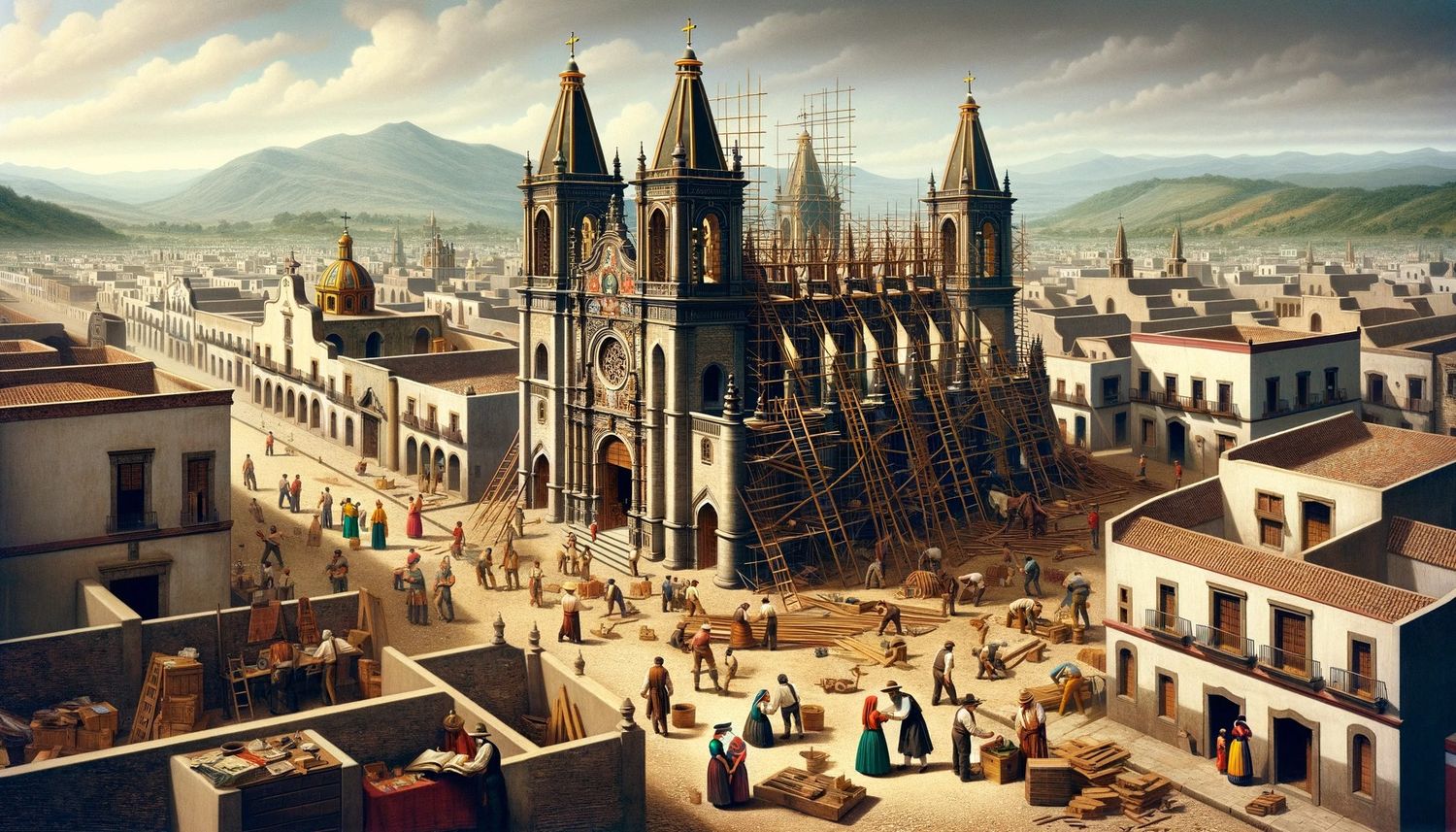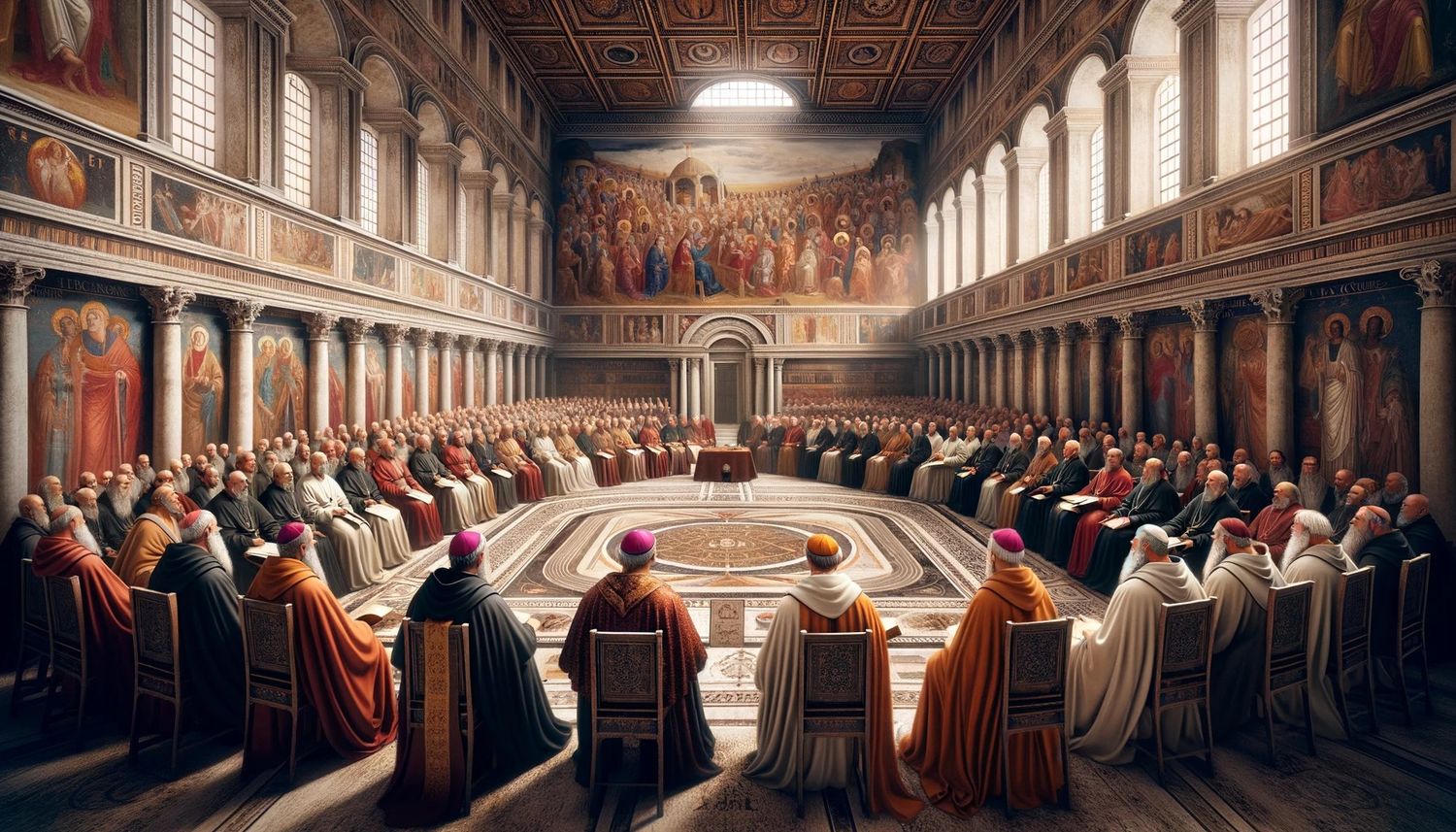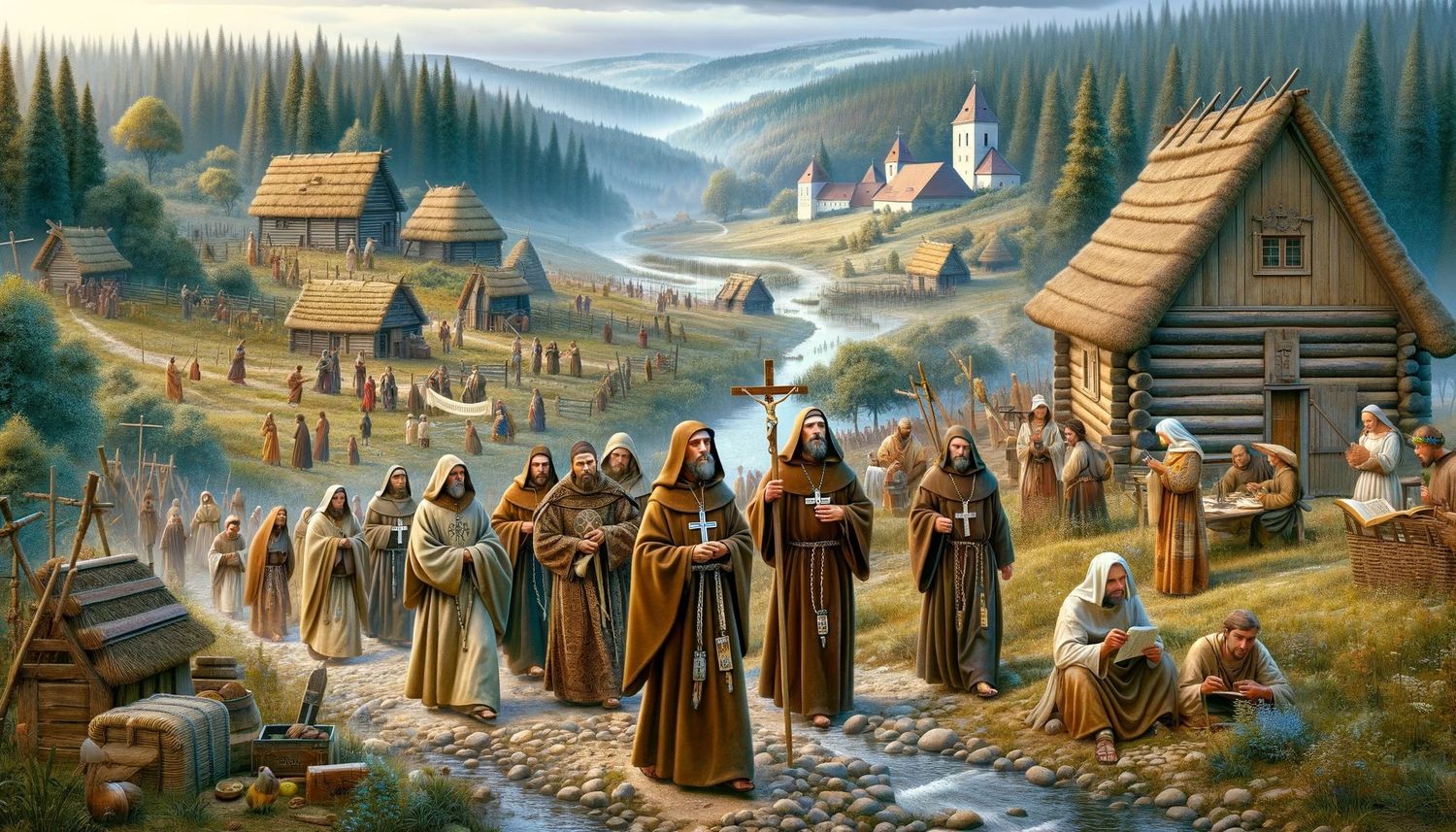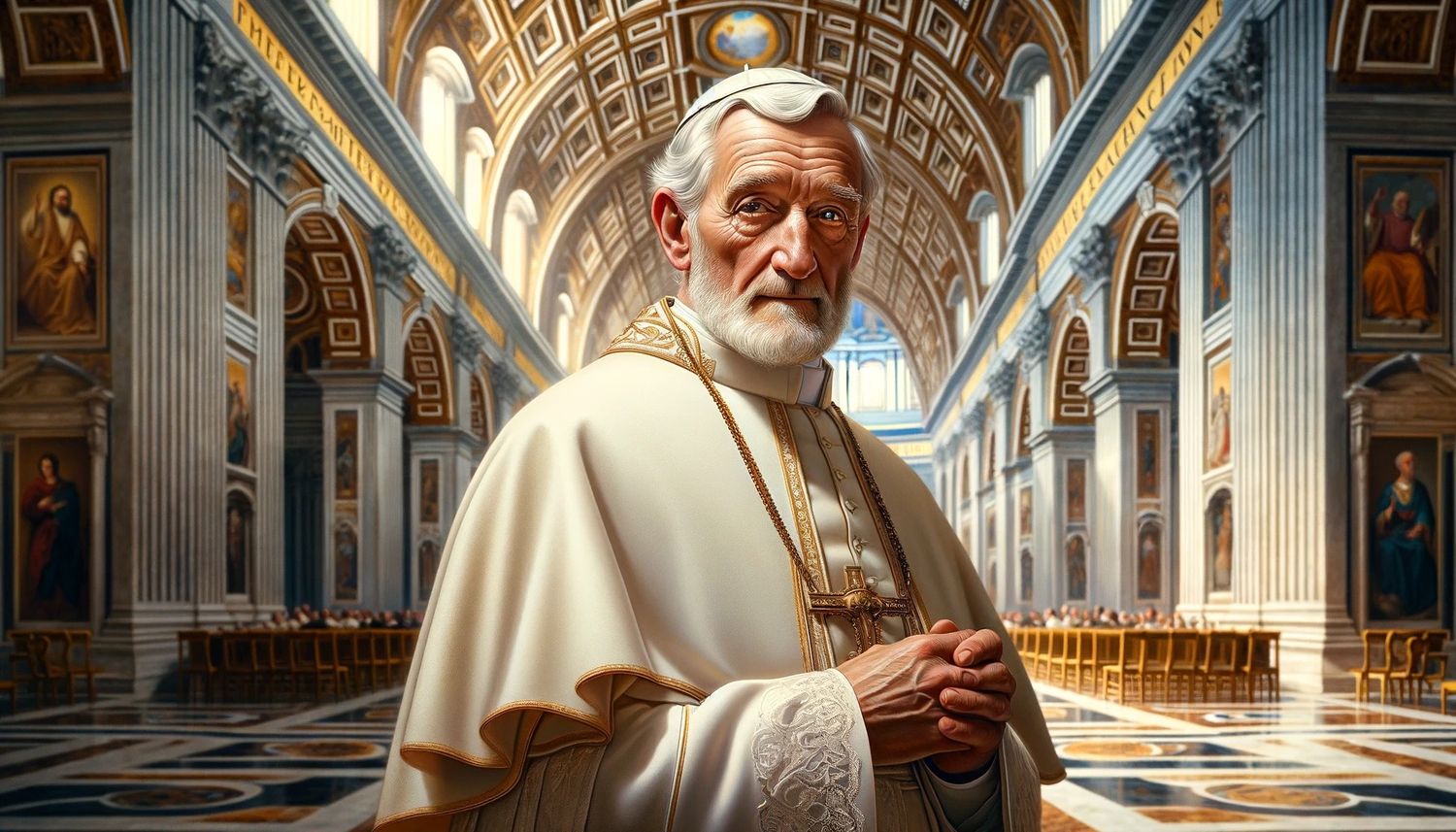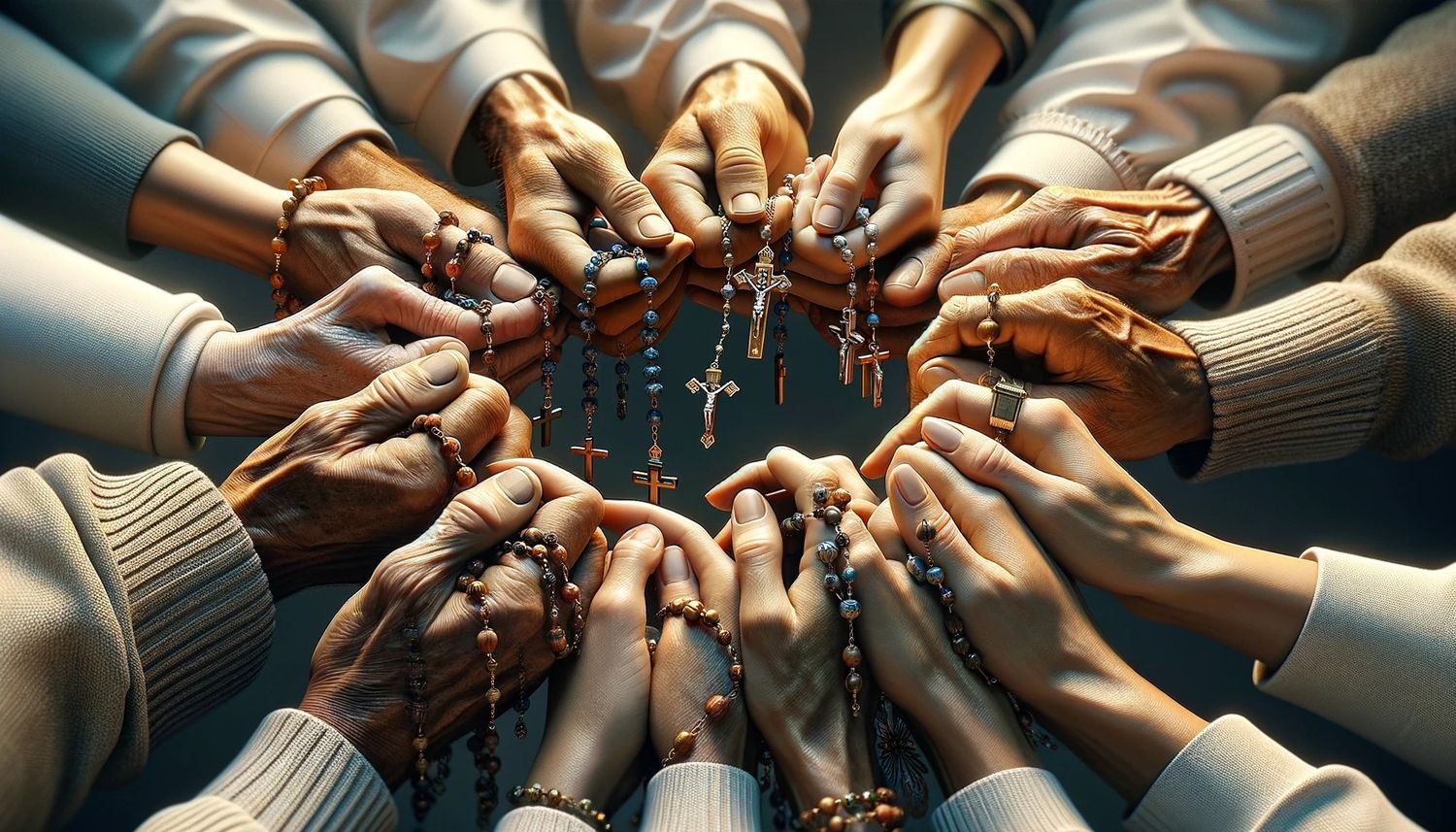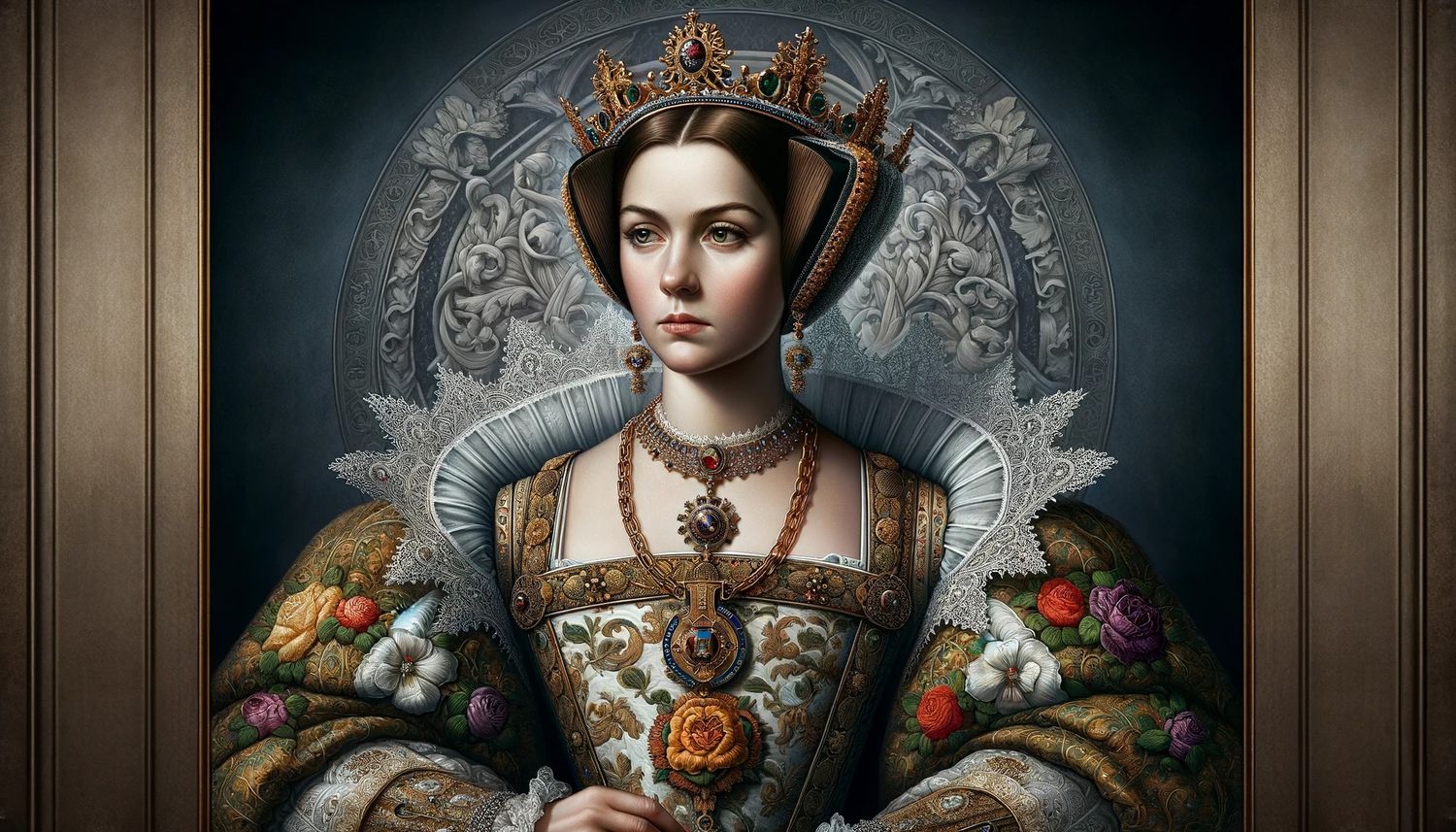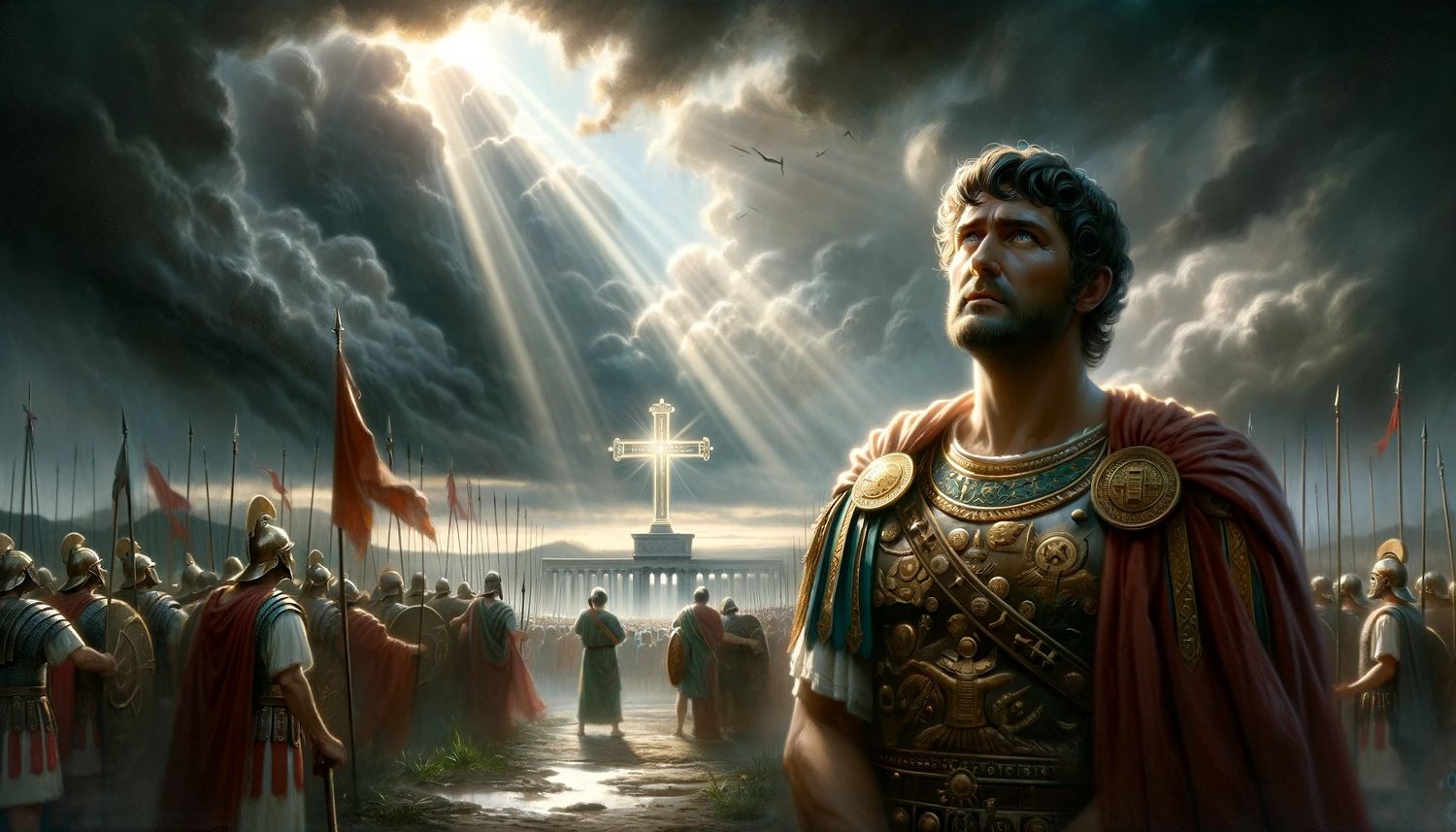Home>Theology and Spirituality>Who Brought Catholicism To Poland
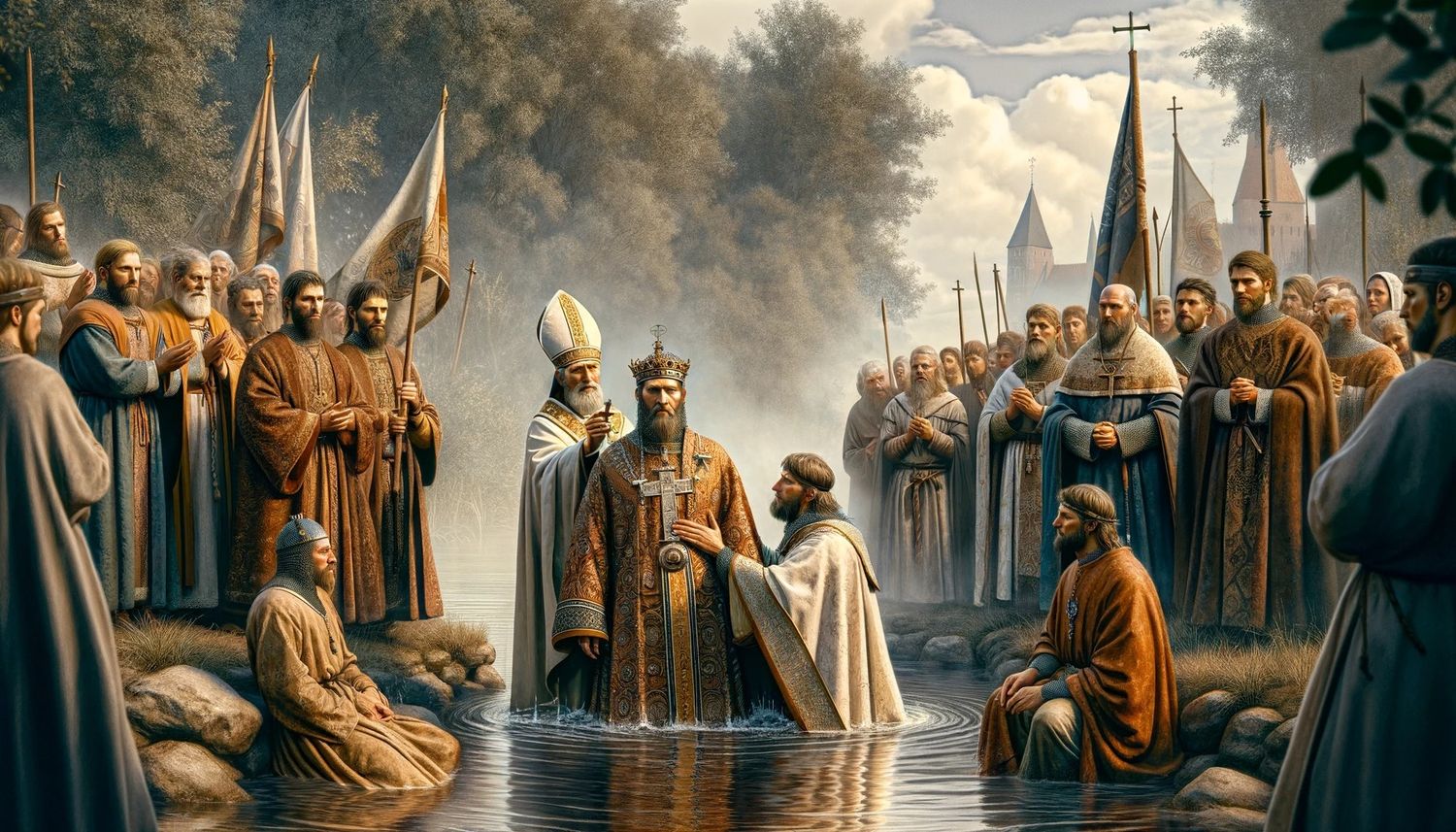

Theology and Spirituality
Who Brought Catholicism To Poland
Published: February 17, 2024
Peter Smith, Editorial Director at Christian.net, combines deep insights into faith, politics, and culture to lead content creation that resonates widely. Awarded for his contributions to religious discourse, he previously headed a major organization for religious communicators, enhancing dialogue on faith's societal impacts.
Discover the history of Catholicism in Poland and the influential figures who brought theology and spirituality to the country. Explore the roots of this faith and its impact on Polish culture.
(Many of the links in this article redirect to a specific reviewed product. Your purchase of these products through affiliate links helps to generate commission for Christian.net, at no extra cost. Learn more)
Table of Contents
Introduction
The history of Catholicism in Poland is a captivating tale that intertwines faith, culture, and national identity. It is a story of enduring spirituality, resilience, and the profound impact of Christianity on the Polish people. The journey of Catholicism in Poland is marked by significant events, influential figures, and the enduring legacy of the faith within the country.
The arrival of Catholicism in Poland is a pivotal moment in the nation's history, shaping its cultural and religious landscape for centuries to come. Understanding the origins and evolution of Catholicism in Poland provides a compelling glimpse into the spiritual fabric of the nation and the enduring influence of the Catholic faith.
As we delve into the historical narrative of Catholicism in Poland, we will uncover the early Christian influence in the region, the pivotal role of Mieszko I in the Christianization of Poland, and the subsequent spread of Catholicism across the country. This exploration will shed light on the profound impact of Catholicism on Poland's identity, traditions, and collective consciousness.
Join me on this enlightening journey through the annals of history as we unravel the captivating story of how Catholicism found its home in the heart of Poland, leaving an indelible mark on the nation and its people.
Read more: Who Brought Catholicism To Japan
Early Christian Influence in Poland
The early Christian influence in Poland can be traced back to the 9th century when Christianity began to make inroads into the region. The initial encounters with Christianity were facilitated through trade and diplomatic relations with neighboring Christian territories, particularly the Byzantine Empire and the Moravian principality. These interactions laid the foundation for the gradual introduction of Christian beliefs and practices to the Polish people.
One of the earliest manifestations of Christian influence in Poland was the presence of Christian merchants and missionaries who traversed the trade routes, bringing with them the teachings of Christianity. These early ambassadors of the faith played a pivotal role in sowing the seeds of Christian thought and spirituality among the Polish populace.
Furthermore, the baptism of the Czech prince, Bořivoj I, and his subsequent marriage to Ludmila, a Christian noblewoman, brought Christianity closer to the heart of the region. This matrimonial alliance not only solidified the ties between the Czech and Polish territories but also facilitated the exchange of religious ideas and customs, contributing to the gradual assimilation of Christian practices within the Polish society.
The influence of Christianity in Poland was also bolstered by the efforts of indigenous rulers who recognized the potential benefits of embracing the Christian faith. Their strategic alliances and diplomatic overtures with Christian powers in the region paved the way for the gradual acceptance of Christianity within the Polish territories.
As the Christian message permeated the social and political fabric of Poland, it began to intertwine with the existing belief systems, gradually gaining traction among the populace. The early Christian influence in Poland, though nascent, laid the groundwork for the momentous events that would unfold in the subsequent centuries, ultimately leading to the widespread adoption of Catholicism as the predominant faith in the region.
The seeds of Christian influence sown during this formative period would blossom into a profound and enduring spiritual legacy, shaping the religious identity of Poland and leaving an indelible mark on its cultural heritage.
Arrival of Catholicism in Poland
The arrival of Catholicism in Poland heralded a transformative era in the nation's history, marking a pivotal shift in its religious landscape. The seeds of Catholicism were sown in the Polish territories through a series of significant events and interactions that culminated in the embrace of the Catholic faith by the ruling elite and the broader populace.
The turning point in the arrival of Catholicism in Poland can be attributed to the baptism of Mieszko I, the first historical ruler of Poland, in 966 AD. Mieszko I's baptism, which took place in the city of Poznań, symbolized the formal adoption of Christianity and marked the beginning of Poland's enduring association with the Catholic Church. This watershed moment not only signified the personal conversion of Mieszko I but also laid the foundation for the Christianization of the Polish state.
The baptism of Mieszko I was not merely a religious event; it was a strategic and diplomatic maneuver that positioned Poland within the broader Christian community of Europe. By embracing Catholicism, Mieszko I sought to forge alliances with neighboring Christian powers, thereby elevating Poland's standing on the international stage. This deliberate alignment with the Catholic Church not only bolstered Poland's diplomatic relations but also set the stage for the widespread dissemination of Christian teachings and practices across the Polish territories.
The arrival of Catholicism in Poland also brought with it a wave of ecclesiastical influence, as Christian clergy and missionaries ventured into the region to propagate the tenets of the faith. Monastic communities and religious orders played a pivotal role in consolidating the presence of Catholicism in Poland, establishing monasteries and centers of learning that became bastions of Christian spirituality and scholarship.
Furthermore, the establishment of dioceses and the appointment of bishops underscored the institutionalization of Catholicism within the Polish state, laying the groundwork for the ecclesiastical infrastructure that would shape the religious and social fabric of the nation for centuries to come.
The arrival of Catholicism in Poland was not without its challenges and complexities. The coexistence of indigenous pagan beliefs and practices alongside the burgeoning influence of Catholicism engendered a period of religious syncretism and cultural exchange. This interplay of diverse religious traditions and worldviews contributed to the rich tapestry of Poland's spiritual heritage, shaping its cultural identity in profound ways.
The embrace of Catholicism by subsequent rulers and the gradual conversion of the Polish populace solidified the position of the Catholic Church as a defining force in the nation's history. The arrival of Catholicism in Poland marked the beginning of a remarkable journey, shaping the spiritual, cultural, and national identity of the Polish people in ways that endure to this day.
Role of Mieszko I in the Christianization of Poland
Mieszko I, the first historical ruler of Poland, played a pivotal role in the Christianization of the Polish state, leaving an indelible mark on the nation's history and religious identity. His embrace of Christianity in 966 AD marked a watershed moment that reshaped the spiritual landscape of Poland and set the stage for the enduring influence of Catholicism within the country.
Mieszko I's decision to embrace Christianity was not merely a personal religious conversion; it was a strategic and diplomatic maneuver that positioned Poland within the broader Christian community of Europe. By aligning himself with the Catholic Church, Mieszko I sought to forge alliances with neighboring Christian powers, thereby elevating Poland's standing on the international stage. This deliberate move not only bolstered Poland's diplomatic relations but also set the foundation for the widespread dissemination of Christian teachings and practices across the Polish territories.
The baptism of Mieszko I, which took place in the city of Poznań, symbolized the formal adoption of Christianity and marked the beginning of Poland's enduring association with the Catholic Church. This pivotal event laid the groundwork for the Christianization of the Polish state, paving the way for the establishment of ecclesiastical institutions and the propagation of Christian faith and values throughout the realm.
Mieszko I's embrace of Christianity also had profound implications for the internal cohesion and governance of the Polish state. The adoption of Christianity provided a unifying force that transcended tribal and regional divisions, fostering a sense of shared identity and purpose among the diverse populace of the emerging Polish nation. This unification under the banner of Christianity contributed to the consolidation of Mieszko I's authority and laid the groundwork for the development of a cohesive and enduring Polish state.
Furthermore, Mieszko I's patronage of Christian clergy and the establishment of monastic communities underscored his commitment to the propagation of the Christian faith. Monasteries and centers of learning became bastions of Christian spirituality and scholarship, contributing to the intellectual and spiritual enrichment of the Polish society.
Mieszko I's visionary leadership and strategic embrace of Christianity set in motion a transformative process that would shape the religious, cultural, and national identity of Poland for centuries to come. His pivotal role in the Christianization of Poland established the enduring legacy of Catholicism within the nation, laying the foundation for a profound and enduring spiritual heritage that continues to resonate within the hearts and minds of the Polish people.
Spread of Catholicism in Poland
The spread of Catholicism in Poland unfolded as a multifaceted and dynamic process, encompassing a series of transformative events, influential figures, and societal shifts that propelled the Catholic faith to the forefront of the nation's spiritual and cultural landscape.
Following the baptism of Mieszko I and the formal adoption of Christianity, the spread of Catholicism gained momentum through a combination of ecclesiastical initiatives, missionary endeavors, and the gradual conversion of the Polish populace. The establishment of dioceses and the appointment of bishops facilitated the organizational and institutional framework for the dissemination of Catholic teachings and practices across the Polish territories. These ecclesiastical structures served as focal points for the consolidation and expansion of Catholicism, providing spiritual guidance and pastoral care to the burgeoning Christian community.
The spread of Catholicism was further propelled by the dedicated efforts of Christian missionaries and clergy who ventured into the heart of Poland, carrying the message of the Gospel to the farthest reaches of the land. These zealous evangelists traversed the countryside, engaging with diverse communities and imparting the tenets of the Catholic faith, thereby sowing the seeds of Christian belief and spirituality among the Polish people. Their unwavering commitment to spreading the Gospel contributed to the gradual embrace of Catholicism by individuals and communities, fostering a collective consciousness that was deeply intertwined with the Catholic tradition.
Moreover, the patronage of monastic communities and religious orders played a pivotal role in the spread of Catholicism, as they established monasteries and centers of learning that became beacons of Christian spirituality and scholarship. These religious institutions not only served as hubs of intellectual and spiritual enlightenment but also functioned as catalysts for the propagation of Catholic values and traditions, permeating the societal fabric and shaping the collective ethos of the Polish people.
The enduring legacy of Catholicism in Poland is a testament to the remarkable spread of the faith, which transcended geographical boundaries and societal divisions, uniting the Polish populace under the banner of the Catholic Church. The spread of Catholicism in Poland represents a profound chapter in the nation's history, underscoring the enduring impact of the Catholic faith on the spiritual, cultural, and national identity of the Polish people.
Read more: Who Brought Catholicism Back To England
Conclusion
The journey of Catholicism in Poland is a testament to the enduring resilience of faith and the profound impact of Christianity on the nation's history and cultural identity. From its early Christian influences to the pivotal embrace of Catholicism under the leadership of Mieszko I, Poland's spiritual landscape has been shaped by a rich tapestry of events, personalities, and societal transformations.
The early Christian influence in Poland, facilitated by trade, diplomatic relations, and the presence of Christian merchants and missionaries, laid the groundwork for the gradual assimilation of Christian beliefs and practices within the Polish society. This formative period set the stage for the momentous arrival of Catholicism in Poland, marking a transformative era in the nation's religious trajectory.
The baptism of Mieszko I in 966 AD stands as a defining moment in the Christianization of Poland, symbolizing the formal adoption of Christianity and the beginning of Poland's enduring association with the Catholic Church. Mieszko I's strategic embrace of Christianity not only solidified Poland's position within the broader Christian community of Europe but also laid the foundation for the widespread dissemination of Christian teachings and practices across the Polish territories.
The role of Mieszko I in the Christianization of Poland was instrumental in shaping the religious, cultural, and national identity of the nation. His visionary leadership and patronage of Christian clergy, coupled with the establishment of ecclesiastical institutions, set in motion a transformative process that continues to resonate within the hearts and minds of the Polish people.
The spread of Catholicism in Poland, propelled by ecclesiastical initiatives, missionary endeavors, and the patronage of monastic communities, fostered a collective consciousness deeply intertwined with the Catholic tradition. This multifaceted process transcended geographical boundaries and societal divisions, uniting the Polish populace under the banner of the Catholic Church and leaving an indelible mark on the nation's spiritual and cultural heritage.
In conclusion, the story of Catholicism in Poland is a testament to the enduring power of faith and the profound influence of Christianity on the nation's history. The arrival and spread of Catholicism in Poland have left an indelible legacy, shaping the spiritual, cultural, and national identity of the Polish people in ways that continue to resonate to this day.

